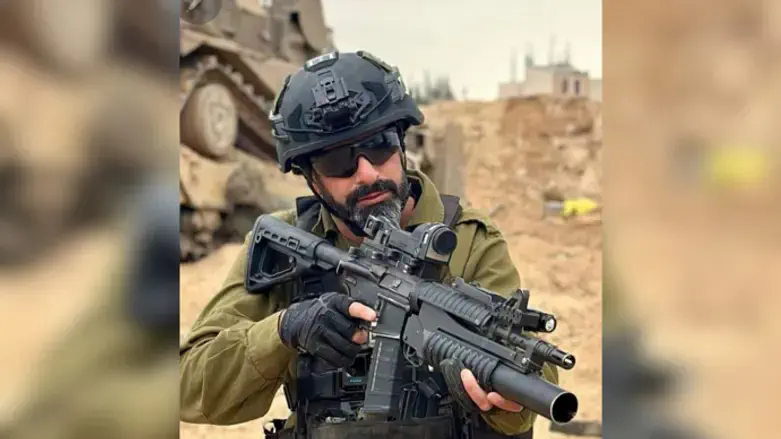
Aviram Atias and Guy Zaken, reservists who were diagnosed as suffering from post-traumatic stress disorder (PTSD), speak about the struggle and their friend Eliran Mizrahi, with whom they fought closely together in Gaza until he ended his life.
"He bled in front of our eyes. It was blood that we couldn’t see," they said.
46-year-old Atias spoke about his friend Eliran in an interview with Kan Reshet Bet: "We have come a long way together. When he first joined our unit in 2006, we felt as if our souls had been connected. Eliran was very significant in our lives. He was a friend, brother, and partner. We went through this journey together of recognizing ourselves as post-trauma victims. We lived it day by day. We had very personal conversations with each other about it."
Zaken painfully described the difficult sights during the battles: "This was nothing that anyone had ever encountered. There are many Israeli heroes, in every incident, in every attack, in every operation that took place, but it always ends after a day or two, or a week or two. We never experienced the number of people killed, wounded, and kidnapped that we have now. The number of incidents in battle, it's not one, two, ten or twenty terrorists, it's dozens, even hundreds."
He added: "So many corpses and soldiers who are killed next to you, or wounded or blown up. There is nothing you don't see. Then there is that horrible helicopter, that I don’t want to see anymore, because of the number of dead and wounded we carried on to it."
Atias says that they were not recognized as post-traumatic immediately, Atias described: "A month before the end of my service, my commander noticed that something was wrong with me. When I went home, suddenly everything changed. My mood changed, but it was all so extreme. Suddenly I was getting up at night and shouting. My wife didn’t understand. You are in delusional situations with yourself, with tremendous anger about everything – you are angry at the state, at your commanders, at yourself, this is all illogical anger."
"It's a mental pain, but there is also physical pain. Our body hurts – our jaws are locked, you scratch yourself from pain, and walk back and forth around the house," Atias added.
Atias said in pain: "Eliran left us an unwritten will. Our difficulty as victims of PTSD is to be exposed. If it weren't for Eliran, Guy and I would be in our own little world and all day long we would be calling each other and saying, 'Take care of yourself.’ Our biggest fear is that one of us will hurt himself. We won’t survive that."

